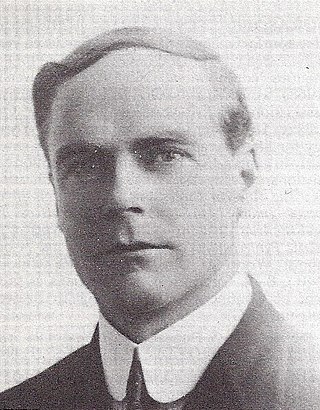This article's factual accuracy is disputed .(November 2009) |
Renewal is the collective term for Charismatic, Pentecostal and Neo-charismatic churches.[ citation needed ]
This article's factual accuracy is disputed .(November 2009) |
Renewal is the collective term for Charismatic, Pentecostal and Neo-charismatic churches.[ citation needed ]
The neo-charismatic denominations have more than a million members in China,.[ citation needed ] In Vietnam the Montagnard Evangelical Church is one of the largest Christian denominations.
In Myanmar, the Assemblies of God of Myanmar is one of the largest Christian denominations. [1] The pentecostal churches Igreja do Evangelho Completo de Deus, Assembleias de Deus, and the Assembleias Evangelicas de Deus Pentecostales are among the largest denominations of Mozambique. [2] Indonesia has the pentecostal church Gereja Pantekosta di Indonesia. Nigeria has the Assemblies of God and the Church of the Lord (Aladura).
Pentecostalism or classical Pentecostalism is a Protestant Charismatic Christian movement that emphasizes direct personal experience of God through baptism with the Holy Spirit. The term Pentecostal is derived from Pentecost, an event that commemorates the descent of the Holy Spirit upon the Apostles and other followers of Jesus Christ while they were in Jerusalem celebrating the Feast of Weeks, as described in the Acts of the Apostles.

The World Assemblies of God (AG), officially the World Assemblies of God Fellowship, is an international Pentecostal denomination.
The charismatic movement in Christianity is a movement within established or mainstream Christian denominations to adopt beliefs and practices of Charismatic Christianity, with an emphasis on baptism with the Holy Spirit, and the use of spiritual gifts (charismata). It has affected most denominations in the United States, and has spread widely across the world.
P'ent'ay is an originally Amharic–Tigrinya language term for Pentecostal Christians. Today, the term refers to all Evangelical Protestant denominations and organisations in Ethiopian and Eritrean societies. Alternative terms include Ethiopian–Eritrean Evangelicalism or the Ethiopian–Eritrean Evangelical Church. Sometimes the denominations and organizations are known as Wenigēlawī.
The Neo-charismaticmovement is a movement within evangelical Protestant Christianity that is composed of a diverse range of independent churches and organizations that emphasize the current availability of gifts of the Holy Spirit, such as speaking in tongues and faith healing. The Neo-charismatic movement is considered to be the "third wave" of the Charismatic Christian tradition which began with Pentecostalism, and was furthered by the Charismatic movement. As a result of the growth of postdenominational and independent charismatic groups, Neo-charismatics are now believed to be more numerous than the first and second wave categories. As of 2002, some 19,000 denominations or groups, with approximately 295 million individual adherents, were identified as Neo-charismatic.

The Assembleias de Deus are a church Pentecostal in Brazil founded by Daniel Berg and Gunnar Vingren, who came to Brazil as missionaries from the Swedish Pentecostal movement. The Assembleias de Deus are related to the worldwide Pentecostal movement, and some groups are affiliated with the Assemblies of God.

The term Eastern Protestant Christianity encompasses a range of heterogeneous Protestant Christian denominations that developed outside of the Western world, from the latter half of the nineteenth century, and retain certain elements of Eastern Christianity. Some of these denominations came into existence when active Protestant churches adopted reformational variants of Eastern and Oriental Orthodox liturgy and worship, while others originated from Orthodox groups who were inspired by the teachings of Western Protestant missionaries and adopted Protestant beliefs and practices.

The Assemblies of God USA (AG), officially The General Council of the Assemblies of God, is a Pentecostal Christian denomination in the United States founded in 1914 during a meeting of Pentecostal ministers at Hot Springs, Arkansas, who came from a variety of independent churches and networks of churches. The Assemblies of God is a Finished Work Pentecostal denomination and is the U.S. branch of the World Assemblies of God Fellowship, the world's largest Pentecostal body. With a constituency of 2,928,143 in 2022, the Assemblies of God was the ninth largest Christian denomination and the second largest Pentecostal denomination in the United States.
Protestants in India are a minority and a sub-section of Christians in India and also to a certain extent the Christians in Pakistan before the Partition of India, that adhere to some or all of the doctrines of Protestantism. Protestants in India are a small minority in a predominantly Hindu majority country, but form majorities in the north-eastern states of Meghalaya, Mizoram and Nagaland and significant minorities in Konkan division, Bengal, Kerala and Tamil Nadu, with various communities in east coast and northern states. Protestants today trace their heritage back to the Protestant reformation of the 16th century. There are an estimated 20 million Protestants and 16 million Pentecostals in India.
Finished Work Pentecostalism is a major branch of Pentecostalism that locates sanctification at the time of conversion; afterward the converted Christian progressively grows in grace. On the other hand, the other branch of Pentecostalism—Holiness Pentecostalism teaches the Wesleyan doctrine of entire sanctification as a definite second work of grace, which is a necessary prerequisite to receive the baptism in the Holy Spirit. Finished Work Pentecostals are generally known to have retained the doctrine of progressive sanctification from their earlier Reformed roots, while Holiness Pentecostals retained their doctrine of entire sanctification from their earlier Wesleyan roots.

William Howard Durham was an early Pentecostal preacher and theologian, best known for advocating the Finished Work doctrine.
Pentecostalism is a renewal movement within Protestant Christianity that places special emphasis on a direct personal relationship with God and experience of God through the baptism with the Holy Spirit. For Christians, this event commemorates the descent of the Holy Spirit upon the followers of Jesus Christ, as described in the second chapter of the Book of Acts. Pentecostalism was established in Kerala, India at the start of the 20th century.
Pentecostalism began spreading in South Africa after William J. Seymour, of the Azusa Street mission, sent missionaries to convert and organize missions. By the 1990s, approximately 10% of the population of South Africa was Pentecostal. The largest denominations were the Apostolic Faith Mission, Assemblies of God, and the Full Gospel Church of God. Another 30% of the population was made up of mostly black Zionist and Apostolic churches, which comprise a majority of South Africa's African Instituted Churches(AICs). In a 2006 survey, 1 in 10 urban South Africans said they were Pentecostal, and 2 in 10 said they were charismatic. In total, renewalists comprised one-fourth of the South African urban population. A third of all protestants surveyed said that they were Pentecostal or charismatic, and one-third of all South African AIC members said they were charismatic.
The doctrines and practices of modern Pentecostalism placed a high priority on international evangelization. The movement spread to Africa soon after the 1906 Azusa Street Revival in Los Angeles.
Charismatic Christianity is a form of Christianity that emphasizes the work of the Holy Spirit and spiritual gifts as an everyday part of a believer's life. It has a global presence in the Christian community. Practitioners are often called Charismatic Christians or Renewalists. Although there is considerable overlap, Charismatic Christianity is often categorized into three separate groups: Pentecostalism, the Charismatic movement, and the Neo-charismatic movement.